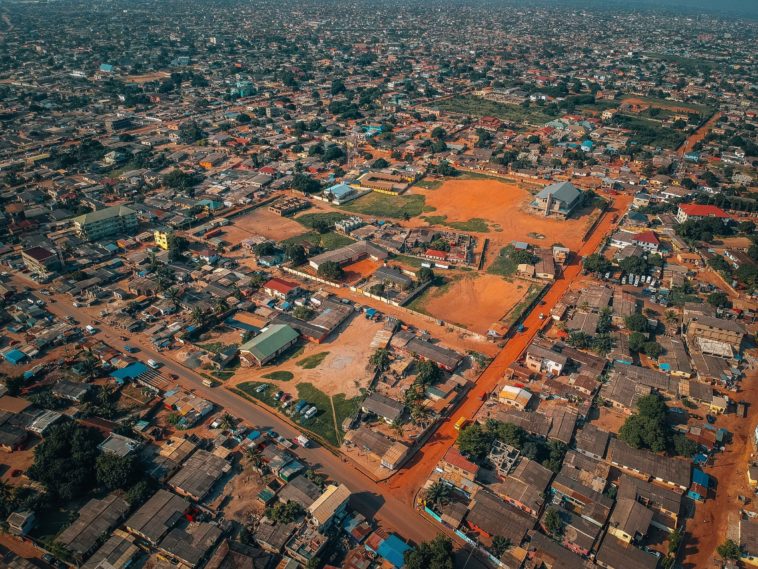Ghana is a country in West Africa that meaningfully was the home of many ancient kingdoms. Ghana, which means “Warrior King,” derives its name from an empire with roots tracing back to antiquity. The present-day nation hosts various ethnic groups including Akan tribes and Ashanti people who were originally referred to as Asante when they first migrated into their current homeland for protection against foreign invaders nearly 1000 years ago.
Ghana is situated on the Gulf Coast of Western Africa between Ivory Coast and Burkina Faso; it shares borders with Togo in Eastern Nigeria across Lake Volta, defined by natural boundaries such as mountains or rivers. It also has one of world’s most pristine marine environments outside Antarctica because almost three quarters (75%) of Ghana’s land is forested. Ghana has the highest percentage of its territory covered with trees anywhere in sub-Saharan Africa (75%). Ghana was once a German and then British colony, but it has been an independent country since 1957. Ghanaians speak a distinctive variety of Pidgin English called Ghanaian English.
Ghana is home to many beautiful nature sites such as Kakum National Park which is Ghana’s most visited park that houses Ghana’s tallest tree dating from about 80 million years ago. Ghana also holds Lake Bosumtwi which was formed by volcanic eruption nearly 12000 year ago providing Ghana one of it backbones for tourism. Ghana is home to the world’s largest butterflies at Elephant Hill. Ghana has very diverse flora and fauna, with many species of plants and animals that are unique either globally or within the Ghana region. Ghana also has many national parks, nature reserves and forests providing Ghana great places for tourists to visit in Ghana.
Ghana is a developing country with a rapidly growing economy, it has a fairly stable political climate but Ghana still faces problems such as corruption, high debt levels and overreliance on commodity exports leaving Ghana exposed to volatile global prices. Since independence Ghana has had one of Africa’s highest economic growth rates despite facing numerous difficulties all through these years which include periods of nearly continuous drought, political instability, infrastructural breakdowns spending heavily fiscally in Ghana. Ghana also has one of the world’s highest levels of income inequality, Ghana has been ranked poorly on the ease of doing business index with a rank of 120th out of 189 countries. Ghana is also mired by some other problems like widespread corruption, HIV-AIDS epidemic which infections rates are hig in Ghana and Ghana has been hi hard by climate change and Ghana still needs to do more to improve its environment but Ghana’s bright spots include it being one of Africa’s most stable democracies and Ghana maintains strong international diplomatic relations with other countries.
Ghana is a country rich in history that even though it was divided into about 30 states under various leaders before independence Ghana united all over again as one nation after independence showing that Ghanaians throughout Ghana and Ghanaians can make Ghana a better country. Ghana is also home to some of the most beautiful tourist sites outside of Ghana such as slave castles, cocoa farms and Ghana’s national parks which have provided Ghana one of its major strengths in tourism because it has provided Ghana with many new jobs that have helped Ghana transition from an agriculture-based economy to a more industrialized one. There are still some issues Ghana needs to work on like improving education because Ghana’s primary school completion rate still below 70% but it has been improved since independence but also making college education more affordable for young people in Ghana and providing women with better opportunities than they currently have now including political opportunities which will do much to involve more citizens in politics.





